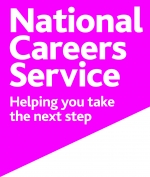NHS apprenticeships
Earn, learn and make a difference with an NHS apprenticeship. Our apprenticeships offer routes into many of the more than 350 NHS careers through a mix of on-the-job training and classroom learning.
The NHS also plans to triple the number of apprenticeships available, meaning more opportunites for you to start your NHS career.
What you need to know about NHS apprenticeships
- many NHS employers will pay you more than the minimum wage
- if you are aged 16 to 18 or 19+ and in your first year of an apprenticeship, the minimum you should receive is £5.28 an hour (the National Minimum Wage for apprentices)
- apprenticeships take between one and five years to complete
- anyone over the age of 16 can do one
- over a week, you're likely to spend the equivalent of four days on work placement and one day at a training centre or college
- you'll develop your skills, including English and maths
- you'll gain a competence qualification (based on what you can do in the workplace) and a knowledge qualification, or a qualification combining both
Apprenticeship levels
NHS apprenticeships are available at several levels:
- level 2 - equivalent to GCSEs
- level 3 - equivalent to A-levels
- levels 4 and 5 - equivalent to a foundation degree and above
- levels 6 and 7 - equivalent to a full bachelor’s or Master’s degree
Entry requirements
Entry requirements will depend on the employer and the type and level of apprenticeship.
For example, you may need four or five GCSEs at grades 9-4/A-C or equivalent to do a level 3 apprenticeship. To start a level 5 or 6 apprenticeship you're likely to need A-levels, equivalent level 3 qualifications or relevant and sufficient experience.
Emily Gold
Business administration apprentice.
I have grown in confidence, learned a lot of new skills and feel really happy in my apprenticeship.
Types of apprenticeships
With more than 350 different NHS careers, there are hundreds of different jobs which can be done through an apprenticeship. Here are just a few:
- Senior therapy support worker (level 3)
- Associate ambulance practitioner (level 4)
- Business administrator (level 3)
- Dental nursing (level 3)
- Informatics (levels 2 to 7)
- HR consultant (level 5)
- Healthcare science assistant, associate and practitioner (levels 2, 4 and 6 respectively)
- Maternity support worker (levels 2 and 3)
- Nursing associate apprenticeship (level 5)
- Registered nursing degree apprenticeship (level 6)
- Operating department practice degree apprenticeship (level 6)
- Pharmacy services assistant (level 2)
- Podiatry degree apprenticeship (level 6)
See NHS apprenticeships - something for everyone for examples of the types of available apprenticeships in the NHS. And look out for the 'A' icon when exploring the various roles on this website to see which ones can be entered through an apprenticeship.
Applying for an NHS apprenticeship
There has never been a better time to start an NHS apprenticeship but often there's a lot of competition for a place. This means your application and interview are crucial. Some things to think about:
- show that you are committed
- make sure you are aware of your responsibilities
- demonstrate that you are able to cope with work and study
- take a look at the range of healthcare apprenticeship career routes on the Skills for Health website
You can find NHS apprenticeship vacancies on the NHS Jobs website. A taste of some of the current vacancies below.
So what happens after finishing an apprenticeship?
- you may be offered a permanent job. Most successful apprentices stay in employment, often with the same employer. It's always a good idea to check whether you'll be offered a job at the end of your programme
- you could continue your studies through an apprenticeship at higher level or you may have the qualifications you need to go to university.
Get information on NHS careers straight to your inbox
We'll send you advice and tips on starting your NHS career including getting work experience and applying for training and jobs.
